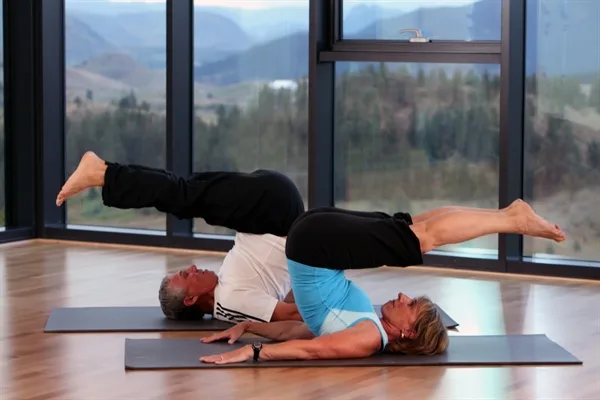Age is only a number… not an excuse
Like fine wine or cheese, some people seem to age better than others. “I’m too old to exercise” is perhaps the most common excuse amongst aging populations but is it justified? Just because the calendar says you’re older, does it really mean that you can’t do the things you used to do?
First things first, let’s consider if your lifestyle has allowed you to age well or not? Have you been able to stay active or have you been sitting most of your life (in the car, at the office, on the couch)? Not surprisingly people who maintain an active lifestyle throughout their life continue to be healthier and move exceptionally better, even into their golden years, than those who have led a more sedentary lifestyle.
Why do I “feel” old?
If you haven’t pushed your body past its comfort level in a long time, your body can forget how to move properly. The creaky and stiff feeling we associate with feeling “old” is your body fighting back in an effort to avoid a perceived injury. So, if you have been sedentary for a while and want to get back to a healthy lifestyle, one of the first things you need to do is start moving again! Be careful though, jumping right back into sprints, power lifting or other highly athletic movements could lead to potential injury.
I’m older now, should I still be exercising?
YES! Unless you are unable to exercise due to reasons beyond your control, you should be exercising. The benefits of movement and exercise far outweigh those of not. Simply moving enough to challenge your body will help keep your muscles supple, joints mobile, lungs functioning, and nervous system prepared for just about anything life throws at you. Strength training especially with weights will help to enhance bone density and increase muscle mass as well as improve other tissues like ligaments and inter-vertebral discs, all of which are hallmarks of good physical health. Any exercise that elevates the heart rate is excellent for preventing chronic heart disease, not to mention it will help you to keep up with others that are younger or fitter than you. Most importantly, regular exercise can significantly reduce the likelihood of you losing balance and falling, as well as reducing the severity of injuries resulting from a fall.
Can I exercise too much?
Over exertion is a common cause of injury any time you start to push past your current physical limits; however, in order to improve there is a certain level of challenge or strain that needs to happen. In theory, exercising at a low intensity should result in less injury but there is no correlation between low intensity exercise and lower injury rates. Simply moving more and in a way that challenges you, will have a positive effect on your health.
A promising trend in fitness right now is High Intensity Training or HIIT which incorporates exercising at higher intensities for short intervals with small breaks in order to maximize your work load and minimize the amount of time spent exercising. HIIT can be extremely effective as well as convenient for many people. Interval training can also be customized to almost any fitness level, age, or ability and often lasts about 30 minutes.
What about Heart Rate Training?
For younger populations heart rate training may be of less importance than for those whom are advancing in age. Most of us can estimate how hard we are working simply by monitoring our exertion level but using heart rate monitors takes the guess work out of determining exertion level and can ensure that you are exercising at a safe level for your heart. The American Heart Association suggests recovering stroke patients should exercise at 50 to 80 percent of their Estimated Maximum Heart Rate or EMHR for the best health benefits. To find your EMHR use the following formula:
Estimated Maximum Heart Rate = 220 – age x (0.5 to 0.8)
Is there anything else I need to consider?
Most of us tend to view exercise in a vacuum and forget to consider the cumulative effect of exercise, nutrition, stress, as well as other factors that may impact our training and recovery. Total training volume, how much you exercise each day, week, month etc… will impact how long it takes you to recover but it’s not the only thing.
Try finding challenging body weight exercises. Getting older means you will find yourself in positions that require you to get off the floor or out of a chair or bed. Bodyweight strength is important to maintain and can help you perform many day to day activities
Think about the type of exercises you do. As you age some modification may be needed, especially if you have taken a significant amount of time off. While you may not be as fast or explosive as you once were, you can probably do most things without much modification as long as you have kept up with an active lifestyle.
While you can ward off many of the affects of aging for much of your life, your body will start to lose ground to age at some point. As you get older, you will take longer to recuperate, you will probably lose some muscle and gain a little more fat as your metabolism starts to slow.
You need to start asking how healthy do you want to be as you age?
Paul Bradshaw l Kinesiologist



